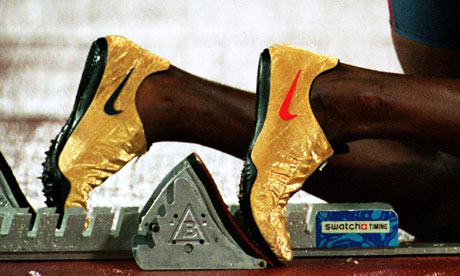With three weeks until the opening ceremony of the Olympic Games, activists are busy cranking out yet another round of anti-sweat shop campaigns and shock-horror exposes. But do these campaigns really make any difference?
Perhaps surprisingly, the answer is yes.
In the new Olympic special edition of Ethical Consumer magazine the spotlight is on Nike and the impact that 20 years of campaigning has had in changing the corporate culture of one of the world's biggest sportswear brands.
It's worth remembering that in the 1990s the global boycott campaign of Nike was so successful that it has now become an object lesson in how giant corporations can be brought to account by ordinary consumers.
"Nike was targeted by campaigners because it was the world's best-selling brand and because initially it denied responsibility for any malpractice that may be taking place in its sub-contractor factories," explains Rob Harrison, editor of Ethical Consumer.
With the campaign scoring a direct hit on Nike's bottom line, the corporation today operates with an openness and transparency that would have been unthinkable 20 years ago. For example on the Fair Labor Association website it's possible to read more than 150 reports of Nike factory inspections conducted by independent third parties.
Problems still exist in Nike's supply chain and the company still doesn't make publicly available all supplier factory information, meaning that Nike is unlikely to be recommended as an Ethical Consumer best buy company any time soon.
However, according to Harrison, Nike should be credited: "For a company which 20 years ago was denying that workers' rights at supplier factories were any of its concern, Nike has come a long way."
The same can also be said of other leading sportswear brands including Adidas, Puma, Reebok and Timberland.


